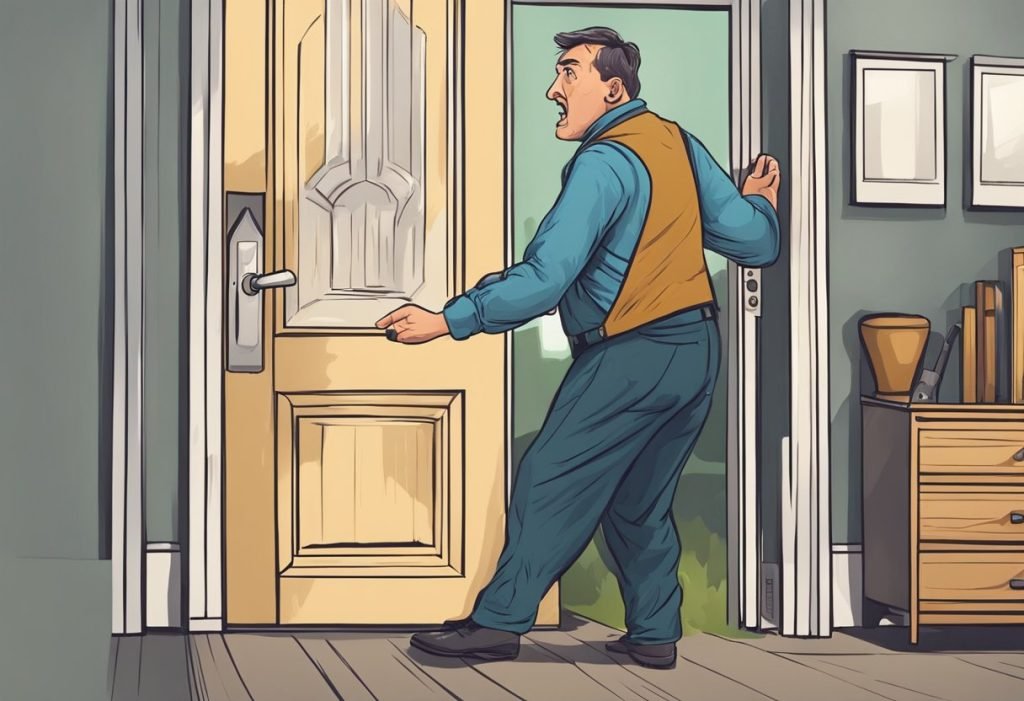Last Updated on March 18, 2024 by Kelvin Nielsen
If you’re a tenant in Florida, you have a right to a peaceful and safe living environment. Unfortunately, some landlords might engage in harassing behaviors that can make your life difficult and even put you at risk.
Landlord harassment can take many forms, from excessive phone calls and texts to threats of eviction or even physical harm.

Understanding what constitutes landlord harassment in Florida is key to protecting your rights as a tenant. The state has specific laws in place that prohibit landlords from engaging in discriminatory or retaliatory behaviors.
If you believe that your landlord is harassing you, it’s important to document any incidents. Then, seek legal advice from a qualified attorney who specializes in landlord-tenant law.
Key Takeaways
- Landlord harassment can take many forms, from excessive phone calls and texts to threats of eviction or physical harm.
- Florida has specific laws in place that prohibit landlords from engaging in discriminatory or retaliatory behaviors.
- If you believe that your landlord is harassing you, it’s important to document any incidents and seek legal advice from a qualified attorney who specializes in landlord-tenant law.
Related Posts:
- What a Landlord Cannot Do in Florida
- Free Legal Advice for Tenants in Florida: Know Your Rights!
- When Does a Guest Become a Tenant in Florida?
- Renters’ Rights in Florida Without a Lease: What You Need to Know
Understanding Landlord Harassment
As a tenant in Florida, you have the right to live in your dwelling unit without being harassed by your landlord. Landlord harassment is defined as any behavior by a landlord that is intended to disturb a tenant’s peace or quiet enjoyment of their rental property.
Here’s what you need to know about landlord harassment in Florida.
Legal Definition and Forms of Harassment
Florida law prohibits landlords from harassing tenants in various ways. Including the following:
- Discriminatory rent increases
- Decreasing services to a tenant
- Bringing or threatening to bring an action for possession or other civil action
- Interfering with the tenant’s right to quiet enjoyment of their rental property
Tenant Rights and Protections
Tenants have several rights and protections under Florida law. If you are being harassed by your landlord, you have the right to withhold rent until the harassment stops, terminate your rental agreement early, or take legal action against your landlord. You also have the right to reasonable notice before your landlord enters your rental unit, except in cases of emergency.
Procedures for Reporting and Escalation
If you are being harassed by your landlord, you should first try to resolve the issue directly with your landlord. If that fails, you can file a complaint with a governmental agency or seek legal assistance from an attorney. You can also organize with other tenants in your building to form a tenant organization to advocate for your rights.
Consequences for Landlords
Landlords who engage in harassment can face serious consequences, including paying damages, attorney fees, penalties, and court costs. They may also be liable for any harm caused to the tenant as a result of the harassment. If a landlord retaliates against a tenant for reporting harassment, they can face additional penalties and damages.
Remember, as a tenant in Florida, you have the right to live in your dwelling unit without being harassed by your landlord. If you believe you are being harassed, know your rights and take action to protect yourself.
Related Post: Renters’ Rights in Florida for Repairs: Know Your Legal Protections
Navigating Lease Agreements and Termination
As a tenant in Florida, it is essential to understand the lease terms and your responsibilities. The lease agreement outlines the rental period, rent amount, security deposit, and tenant obligations.
Florida law regulates the maximum amount of security deposit a landlord can charge, which is equal to one month’s rent. You are required to pay rent on time and take care of the rental unit, including any agreed repairs, decorations, alterations, or improvements.
If you fail to pay rent, your landlord can pursue eviction for nonpayment of rent. However, your landlord must have good cause and provide evidence to support the eviction. Your landlord can also evict you for violating reasonable rules or damaging the rental unit. In such cases, your landlord must provide you with a written notice and an opportunity to cure the violation.
Tenants facing harassment from their landlord have options to terminate the lease agreement. If you have been subject to harassment, you can break the lease agreement and move out without penalty. You can also pursue your rights or remedies under Florida law. If you choose to move out, you must provide written notice to your landlord and pay rent until the move-out date.
Understanding Lease Terms and Tenant Responsibilities
Before signing a lease agreement, you must read and understand the lease terms and your responsibilities. The lease agreement outlines the rental period, rent amount, security deposit, and tenant obligations. You are required to pay rent on time and take care of the rental unit, including any agreed repairs, decorations, alterations, or improvements.
Legal Grounds for Eviction and Tenant’s Defenses
Your landlord can evict you for nonpayment of rent, violating reasonable rules, or damaging the rental unit. However, your landlord must have good cause and provide evidence to support the eviction. As a tenant, you have defenses against eviction, such as the landlord’s failure to follow the proper eviction process or retaliation against you.
Options for Tenants Facing Harassment
If you are facing harassment from your landlord, you have options to terminate the lease agreement. You can break the lease agreement and move out without penalty. You can also pursue your rights or remedies under Florida law, such as filing a complaint with the local housing authority or seeking a restraining order.
Disclosure: The content herein isn’t a substitute for advice from a professional attorney. It’s only meant to serve educational purposes. If you have a specific question, kindly seek expert attorney services.
Sources: FL Statutes Chapter 83 Part II, Florida Renters Rights Guide,

Amanda Rose is a seasoned landlord with 13+ years of expertise in overseeing diverse properties. Her adept management spans single and family homes, along with multi-family apartments and condos, across Wyoming and South Dakota. Her commitment and proficiency have cemented her status as a thriving property management professional.
She is a member of the following organizations: Wyoming Landlord’s Association, National Association of Residential Property Managers (NARPM), Wyoming Apartment Association, South Dakota Multi-Housing Association (SDMHA), and South Dakota Landlord Association (SDLA).







